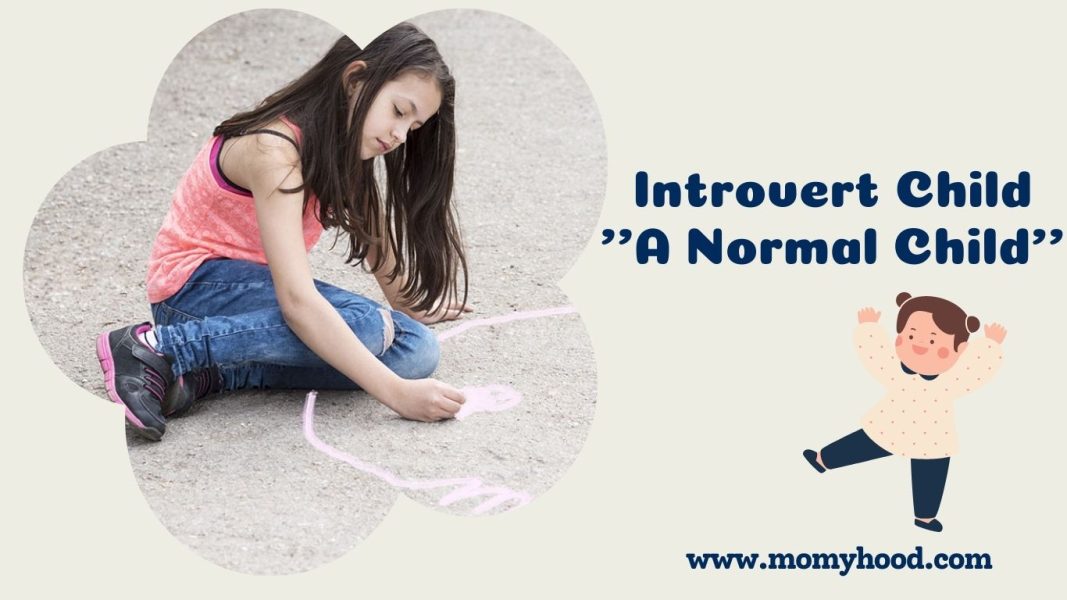Does your child prefer to play alone?
Have you noticed that your child has only 1 – 2 friends?
Does your child shy away in the social group setups like playschools or daycares?
Is your child usually chirpy at home unless you have visitors?
If you answered most of these questions affirmatively, your child is most likely an introvert. This means they are more inclined to their inner selves and derive happiness from deeper things. They will take time to open up, and they will be very picky about who they open up to. If you and your spouse are very chirpy, you may find this behavior snobbish, but trust me – it is not!
This is just a different personality type. An introverted child may not express his thoughts and feelings verbally, but they express themselves differently. It can get difficult to deal with such a child as a parent. However, once you learn what pattern works best for both of you, you will begin to enjoy this journey.
Contents
Introversion is Different from Shyness
An introvert child is often labeled as shy. Being shy and being an introvert are not the same. A child who is shy wants to be a part of the group but is scared and apprehensive. On the contrary, an introverted child truly enjoys being alone. It is important to know the difference, and as parents, it is our responsibility to support them through it. Shyness can be overcome by counseling. However, introversion cannot; it is merely a choice.
Parenting an Introvert Child
Acceptance
Your child needs you to accept them as they are complete. As a child, it is the least they ask, and it is only you that they can expect that from. Even if you are a socialite and your childhood responses would have been completely contrary to your child’s, please do not push the child into any group as it makes them highly uncomfortable. As a parent, you are their space of comfort. Allow them the luxury to walk into that space whenever, and as many times they wish to.
Put Your Child’s Needs Above Societal Norms
As a society, we have left very little room for introverts. At any social gatherings, everyone is expected to talk (sometimes this leaves me wondering who is listening 😊). You will notice that the moment you enter a gathering with your little one, especially till toddlerhood, everyone will just rush to the baby, talk to the child, pick him /her up, and introduce themselves to the child. You will notice that your little one gets highly uncomfortable with this sudden gush of people.
If you are in a new environment and amongst new people, you are certainly heading for a meltdown. As you enter, hold your baby tight. Reassure them that you are around. And if your child starts feeling uncomfortable, please don’t hesitate to tell the hosts or other guests to allow your child some time to socialize. Until your child observes and is comfortable, allow them the comfort of your presence. You will certainly attract a few raised eyebrows, but it is ok.
Handling Meltdowns
Introverted kids might have meltdowns in a middle of a birthday party or at playdates. If you know that there is an upcoming event, you can try and prep the child mentally. Talk to them about what they can anticipate. They will take some time to assimilate the information. In a middle of a meltdown, you can take a short break and take the child for a stroll. This will help calm them down. Acknowledge and appreciate when you see them take a few steps towards interacting with newer people. (For example – ask a new boy/girl for a toy). Make it a point to voice it out when you see them enjoying a situation they were earlier apprehensive about engaging in.
Please avoid reducing or backing out of social situations just because they have meltdowns. It is necessary to expose the child to social situations while helping them settle in.
Help them Observe
They have a strong need to observe. They will not take a direct plunge. And, they will watch what and how others do, what are the reactions, and then slowly, they will decide if they want to join in or not. So, if you go to a mall or a play center, you will see an introvert child standing outside the group, clinging to you. If you push them or force them to join in immediately, it may not go well with them. Instead, try showing the kid how other kids are enjoying it. Stay with them till they are comfortable and ask politely – if they would like to join the group or play in the same circle on their own.
Focus on Different Mediums of Expression
Introverted kids don’t express themselves via words; they communicate differently. Some might prefer to find solace in reading books, others in drawing, music, or any other form of art. Try different things with your child and see what they like. Try and spend some alone time with them doing that activity. Also read, Nurturing Self Esteem in Kids – Why It Is Important?
Ask Questions
An introvert child may retract their feelings to themselves. They may not tell you if they had a bad day at school or if they have faced a difficult situation at the playground. You may have to ask them multiple questions to understand their deep feelings as a parent. A word of caution, though – let it not sound like an interrogation. Many introverts, including children and adults, struggle with feeling “heard” by others. They need their caregivers to listen and reflect on them.
Pick the Right Educational Institution
An educational institution plays a large role in your child’s long-term development. Most schools today make kids work in groups or pods, which may make your child uncomfortable. Please check beforehand the level of group activities the child is expected to engage in and whether that suits your child’s needs. Also, check what kind of co-curricular activities the school promotes – do they have science clubs, book reading clubs, toastmasters clubs, and/ or individual sports that are more conducive to your child’s growth. Lastly, please brief the teachers about your child’s introversion.
Some Activities to Engage with Introvert Children
Introduction to Books
I strongly recommend that you introduce your child to books as early as you can. It could be board books, storybooks, coloring books, touch and feel books – to sum up, any form of a book.
Storytelling
Stories are magical. You can weave your own stories around common everyday situations. It can have their favorite toys as characters navigating successfully through social situations.
Enroll them in a Self-defense Classes
Enrolling your child in self-defense classes will make them more confident and disciplined. While these classes are typically done in small groups, they allow the comfort of practicing alone with the instructor and can work wonders. You could pick any form – Karate, Judo, Taekwondo, Tai Chi, or Muay Thai, to name a few common ones.
Takeaway
Always remember that introversion is not an illness, its just a different temperament. It does not need correction. It needs acceptance and celebration. Most creative and intellectual people are introverts. If you have an opportunity to raise one –enjoy the process! And Be proud of your kid for not being ‘loud.’
Your comments and shares do more than just support our blog—they uplift the amazing moms who share their stories here. Please scroll down to the end of the page to leave your thoughts, and use the buttons just below this line to share. Your support makes a big difference!



